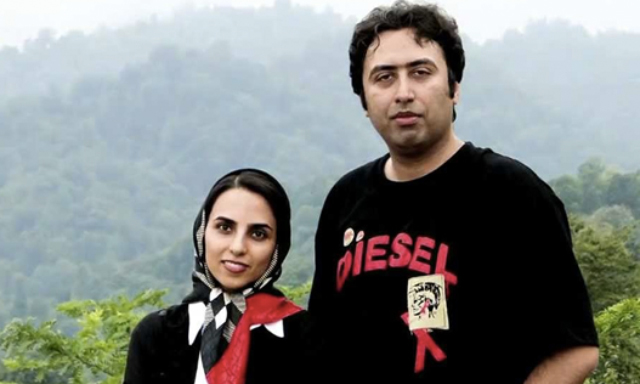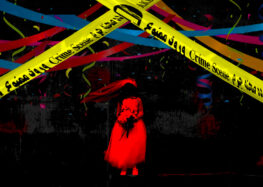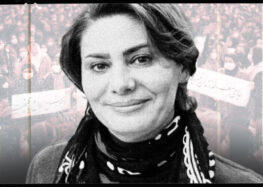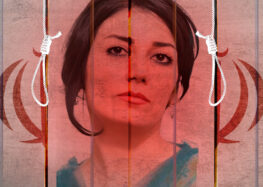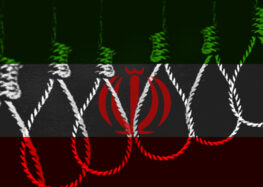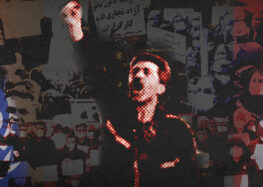Two Poets Sentenced to Flogging and Nine and Eleven Years in Prison
Forced Confessions Used as Primary Evidence in Convictions
October 14, 2015—A Tehran Revolutionary Court has sentenced the poets Fatemeh Ekhtesari and Mehdi Moosavi to 9 years and 6 months and 99 lashes, and 11 years and 99 lashes, respectively, on charges of “insulting the sacred” for the social criticism expressed in their poetry.
The flogging sentences were a result of the charge of “illegitimate sexual relationship short of adultery,” for shaking hands with strangers (a person of the opposite sex who is not one’s immediate kin or spouse), according to Amir Raeesian, the lawyer representing Ms. Ekhtesari and Mr. Moosavi, who spoke with the International Campaign for Human Rights in Iran.
“These sentences show that repression in Iran is intensifying,” said Hadi Ghaemi, executive director of the International Campaign for Human Rights in Iran. “Hardliners aren’t just going after political activists, they are determined to stamp out any social or cultural expression with which they disagree.”
The Campaign has learned that a third individual, the filmmaker Keywan Karimi, was sentenced to 6 years in prison and 223 lashes on similar charges.
While many hoped for a loosening of repression in Iran with the election to the presidency of the centrist Hassan Rouhani in June 2013, this has not happened. Hardliners, faced first with Rouhani’s electoral win, and then with his administration’s achievement of the nuclear agreement, have pushed back, determined to maintain their primacy in the domestic sphere.
Parliamentarians, intelligence and security organizations under the authority of the Revolutionary Guards, and the Judiciary, all enjoying the support of the country’s Supreme Leader, Ali Khamenei, have worked as one to impose a security state in which dissenting views of any type are considered national security threats and prosecuted as such.
“The Iranian Judiciary is signaling it will brook no dissent, and appears intent to instill fear in the citizenry through these harsh sentences,” said Ghaemi. “Not only are the prosecutions of these poets a violation of Iran’s own laws and its international obligations regarding freedom of expression, lashing has been designated by the UN as tantamount to torture.”
The convictions in the two poets’ case were also based on forced false confessions, a routine practice in Iran in politically motivated cases in which there is no evidence against the defendant.
Typically, the individual is held in solitary confinement and subjected to intense psychological pressure, and interrogators, working hand in hand with Revolutionary Guard and judicial officials, extract the “confessions.” The confessions are then broadcast by the state-run TV, Islamic Republic of Iran Broadcasting (IRIB), in order to defame the defendant in the public eye.
A source close to the poets’ case told the Campaign that during repeated long interrogations over more than a month of solitary confinement, Ekhtesari and Moosavi were forced to make confessions according to their interrogators’ specifications. These “confessions” comprised the main evidence used in the poets’ sentencing. Both refuted their charges during their trial.
“This ruling has no legal basis. We will appeal these rulings and we hope that the appeals court will overrule them,” said their lawyer, Amir Raeesian, who was served the rulings on October 10, 2015.
Fatemeh Ekhtesari, 31, a post-modern Iranian poet, was sentenced to seven years in prison for “insulting the sacred,” three years for “publishing unauthorized content in cyberspace,” and one-and-a-half years for “propaganda against the state,” totaling eleven years and six months.
Mehdi Moosavi, 41, a physician and a poet well known for his poignant poetry about social issues, was sentenced to six years in prison for “insulting the sacred” and three years for “possession of tear gas at his residence.” The so-called tear gas was the self-defense spray, Mace, for which he had a permit.
Revolutionary Guards Intelligence agents arrested Ekhtesari and Moosavi at their respective homes on December 8, 2013, and transferred them to solitary cells at the Guards’ Ward 2-A at Evin Prison. They were released on bail on January 13, 2014.
Judge Moghisseh, frequently handpicked by the Judiciary to preside over politically motivated cases due to his close ties with Revolutionary Guards’ Intelligence officials and the harsh verdicts he hands down, presided over the two poets’ trial at Branch 28 of the Tehran Revolutionary Courts.
“Nowhere in their poetry are there any words or subjects which could represent ‘insulting the sacred,’ said the poets’ attorney, Amir Raeesian. “All books by these two poets were published with permits issued by the Ministry of [Culture and Islamic] Guidance. Also, the charge of ‘possession of tear gas’ is totally wrong. As a physician, he owned self-defense spray [Mace], which had the proper permit. Also, the charge of ‘propaganda against the state’ for Ms. Ekhtesari has no evidence in the case file.”
The source close to the case pointed out a significant violation of due process in the prosecution. “The date recorded on the court ruling, which the lawyer has seen, was June 22, 2015. But the last court trial session for Moosavi and Ekhtesari was held in September. This means that the ruling was issued prior to the last trial session and before the lawyer and the suspects had presented their defense.”
“Perhaps Fatemeh Ekhtesari’s poetry is one of [social] protest, but none of her poems were insulting. Her ruling indicates that ‘she has insulted the sacred through contact with [the German-based Iranian musician] Shahin Najafi, referred to as ‘the irreverent singer’ [for his protest music]. But Shahin Najafi sang a song based on one of her poems years before [a Grand Ayatollah] called him an apostate [in 2012]. What does this issue have to do with Ms. Ekhtesari? She never insulted God or the sacred in any of her poems. The [Culture and Islamic] Guidance Ministry would have never authorized the publication of her poetry if that were the case,” the source added.
In 2010, Shahin Najafi based a song on a poem from Fatemeh Ekhtesari’s collection of poetry, “A Feminist Discussion Before Boiling the Potatoes,” which was removed from the 2010 Tehran Book Fair because of its criticism of social issues. This led to her charge of “insulting the sacred.”
Najafi also based a song on Mehdi Moosavi’s poem, “The Finished Poet,” from his collection “The Little Bird Was Neither A Bird, Nor Little!” which was removed from the 2014 Tehran Book Fair following criticism by conservative websites such as Fars News Agency.
Regarding the charge of “propaganda against the state,” the source told the Campaign that Ekhtesari and five other women had traveled to Sweden to read poetry. “In her ruling it is reflected that she cooperated with Swedish journalists and spies on this trip, and that she had exchanged information and provided negative propaganda about Iran. But none of these are true. The Intelligence Ministry can easily find the names of individuals who attended the festival and research them. None of them were spies.”
As for the charge of “illegitimate sexual relationship short of adultery,” the source said the charges were raised because Ekhtesari shook hands with men at the poetry festival in Sweden. “She said repeatedly that she had made a mistake, and that she never intended to promote corruption and vulgarity. Her conduct was not according to norm, but it was not a crime.”
Mehdi Moosavi published news of his sentencing on his Instagram page. He called the charge of “possessing tear gas” as comical and wrote that he has never seen tear gas in his life. “During the 40 days I was interrogated by the [Revolutionary Guards], and even in court, there was never a word about such issues,” he wrote.
The Ekhtesari and Moosavi rulings are only the latest episodes in the Islamic Republic’s denial of Iranians’ right to peaceful artistic expression.
Moosavi’s Instagram post on his and Ekhtesari’s sentencing was the initial source that Branch 28’s Judge Moghisseh had also sentenced the filmmaker Keywan Karimi to 6 years in prison and 223 lashes on similar charges.
The artist Atena Faraghdani was sentenced on June 1, 2015, to twelve years and nine months in prison after drawing a cartoon that depicted members of the Iranian Parliament as animals and posting it on her Facebook page.
The activist Atena Daemi received her 14-year prison sentence in May 2015 in part because they found Shahin Najafi music on her cell phone.
Earlier this year, the Campaign reported on the harassment and repeated interrogations of two board members of the Iranian Writers’ Association, Baktash Abtin and Reza Khandan Mahabadi.
The authorities also continue to vigorously pursue and prosecute members of the Iranian underground music scene—music that is produced or performed without first receiving the required state permits.
In addition to the prosecutions of writers, artists, and musicians, censorship and banning augment the curtailment of artistic freedom in Iran. Iranian book publishers are frequently denied licenses to publish books, a large number of films continue to be banned, and prominent musicians such as Mohammad Reza Shajarian and Kayhan Kalhor have faced frequent cancellations of their scheduled concerts, despite their having been issued licenses for the performances.

